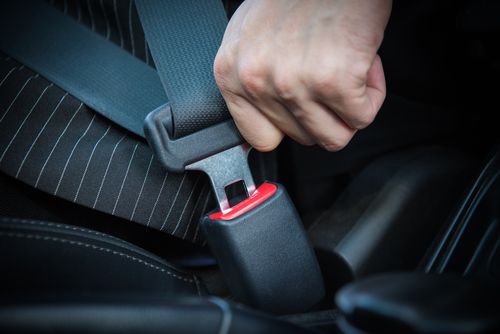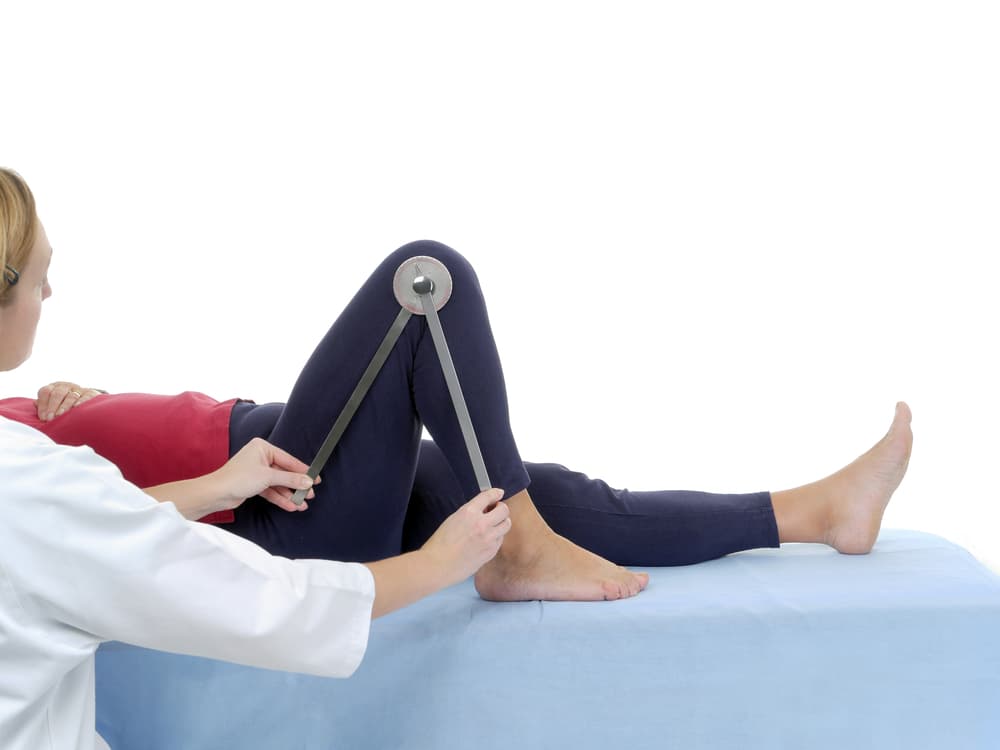A deposition is a proceeding during which the attorneys will ask you a series of questions about the car accident. Once the deposition is complete, the court reporter will prepare a transcript for review by both sides. Your lawyer will evaluate the transcript to determine the next steps in your case.
These next steps can include a medical examination, going to trial, reaching a settlement agreement, or filing an appeal, depending on the direction your case takes. Your car accident lawyer will prepare you for the deposition and guide you through what happens afterward.
What Is a Deposition?
A deposition is an out-of-court proceeding in which both parties gather information and evidence as part of the discovery process to prepare for trial. This usually includes questioning witnesses under oath, and a stenographer or court reporter is present to record the testimony.
The three types of depositions in which you could participate include:
- Written depositions: A written deposition, sometime called interrogatories, involves providing the witness, also known as the deponent, with a questionnaire they must fill out in writing. Your lawyer will be present, and you can answer questions at will. There are also no time limitations or guidelines on the kinds of questions.
- Oral depositions: An oral deposition involves each legal representative taking turns asking a witness one question at a time. Unlike a written deposition, an oral deposition typically has a time limit, and the types of questions must pertain to the claim.
- Video depositions: Video depositions involve the witness recording their testimony and playing it back for the deposition. This type of deposition is becoming more common in the digital age.
Why Are Depositions Important?

There are several reasons why lawyers use depositions. They can lead to the discovery of new evidence, influence legal strategies, and even result in settlement agreements. Most car accident personal injury cases settle out of court.
One way a deposition is helpful is to determine the credibility of a witness. For example, lawyers can depose the drivers, passengers, and anyone who saw the accident occur. They can also sometimes depose medical professionals who treated your injuries to further document them through testimony, and they can depose family and friends who know how your injuries affected your quality of life.
Lawyers can also degrade the credibility of the at-fault party’s witnesses if their deposition testimony differs from their trial testimony.
You do have rights during a deposition. You have the right to have your attorney present, the right to confer privately with counsel during the proceeding, and the right to object to questions or clarify your answers.
What Could Happen After a Deposition in a Car Accident Case?
Depositions can be recorded verbatim via shorthand, stenotype, stenomask, or electronic recording equipment.
This is key to what happens after a deposition. Here’s what you could expect:
The Court Reporter Will Prepare the Transcript
A court reporter is typically present during depositions to record the proceedings. After a deposition concludes, the court reporter will prepare a transcript accessible by both parties’ legal representatives for review. Preparing a legible transcript of the testimonies delivered during a deposition could take a few weeks.
Your Lawyer Reviews the Transcript
Your lawyer will carefully examine the transcript to identify any errors or misinformation. They may determine that another witness must be heard and work to schedule another deposition to gather additional testimony.
You and Your Lawyer Discuss the Deposition Itself
Upon reviewing the transcript, your lawyer will tell you how the deposition will impact your case. This will be an honest assessment, so you should prepare for both good and bad news.
You May Undergo an Independent Medical Examination
The other side may request an independent medical examination of your injuries after a deposition. The insurance provider may send you to a doctor who they hire to evaluate your condition and offer opinions about whether you were injured in the accident. Unfortunately, the doctor may try to minimize your injuries or claim the cause of your injuries was not the car accident. Your lawyer will prepare you for a medical examination. You should not give the doctor excess information, and your own doctor should write a report documenting your injuries.
The Other Party May Suggest a Summary Judgment
The defense can file a motion to accelerate a judgment in your case. Instead of a trial in which your lawyer argues your case in front of a jury, the judge will review the facts and issue a decision. If this occurs, your lawyer will argue why your case should go to a full trial.
You Appear at Trial
Should your case go to trial, you will have to appear in court as your lawyer presents your case and any evidence that supports your claim. A trial can take weeks, even months, to unfold. A jury will hear the evidence from both sides and issue a verdict. If the jury sides with you, you will receive a court award to cover your damages.
You May Reach an Out-of-Court Settlement
Another path your case could take is if both sides reach a settlement agreement. This would avert a trial, but settlement negotiations could continue even during a trial. If you agree to a settlement agreement and sign off on the terms, you will receive a settlement check, but you cannot seek additional compensation in the future. Your lawyer will review a settlement agreement with you, and you can accept it or reject it.
The legal process can take time. Depositions are just a small part of that process, lasting from hours to weeks. They help your lawyer represent you to the best of their ability. Your lawyer will prepare you for a deposition and walk you through the entire process from start to finish.
How You Can Prepare for a Deposition?
It’s normal to feel nervous before a deposition, but your attorney will prepare you so you feel more confident going into one.
You should:
Practice Answering Questions Beforehand
Your lawyer will likely help you practice answering questions the other side will possibly ask during the proceeding. This could include a mock deposition so you can get an idea of what the real thing will be like. Feel free to ask questions during this time if you don’t understand something or need additional clarification. Your lawyer wants to help you prepare as much as possible.
Dress Appropriately and Bring Relevant Documents
A deposition is a professional proceeding that usually takes place in an attorney’s office. The defendant, their attorney, and the court reporter will also be present. Dressing in clean, professional clothing is advisable. Bring any evidence or documentation with you that can confirm your injuries and other damages, such as lost income. This can include medical records, police reports, and pay stubs.
Act Rationally
Don’t be afraid of the lawyers in the room. You have rights during a deposition, and your attorney will defend them. Try to answer questions truthfully and remain aware that you are under oath and that perjury still applies if you lie. Remain calm and tell your side of the story without losing your temper toward the other side for trying to discredit your claim. The other side wants you to react irrationally. If you don’t know the answer to a question, it’s acceptable to say so.
Preparation doesn’t necessarily make perfect, but it does help you understand the process so you can get through it. Your lawyer will know how to prepare you and will be there with you every step of the way.
Possible Questions During a Deposition
A deposition can take several hours or even several days. During that time, you will likely field many questions as both sides try to gather evidence and determine the facts of the case. You can expect questions about your background, your medical history, your injuries, and the car accident.
You have the right to object to questions and to clarify your answers. You must tell the truth when answering questions, but it’s acceptable if you don’t have an answer.
Possible questions you need to answer during a deposition include:
- Did you suffer injuries in the collision? If so, what types?
- What did you do immediately after the accident?
- Have you ever been in an accident before?
- What do you think caused the accident?
- Were there any roadway conditions that may have caused the collision, such as construction?
- Were you using your phone at the time of the accident?
- Did your car sustain damage? If so, to what extent?
- Was there anyone else in your vehicle at the time of the accident?
- Do you remember what speed you traveled at the time of the crash?
- Do you have any auditory or visual disabilities?
- Do you have any previous convictions for driving while intoxicated?
Some of these inquiries are loaded questions. The other side may want you to admit fault for the accident, or at least underplay your injuries in some way. There, they can paint your case in a poor light and protect their client from liability. During your deposition, your lawyer can advise you on what you should and should not answer.
Again, it’s alright if you don’t know the answer to a question. Some questions will be more challenging than others, but it’s important that you tell your story to the best of your ability and as accurately as you can recall.
Your Lawyer May Rely on Other Fact-Finding Measures Aside From Depositions
Your lawyer does not only have to rely on depositions to discover the facts and gather evidence in your case. There are other acceptable methods a lawyer has at their disposal in the personal injury claims process, such as filing requests for the production of documents and requests for admissions.
A request for the production of documents may be filed by both sides and is useful to obtain certain documentation related to your claim. For instance, your attorney can request documentation such as the at-fault party’s driving record. In another example, suppose the at-fault party was arrested at the scene. Your lawyer can request charging documents and results of chemical testing for alcohol or drugs to demonstrate that they were impaired at the time of the accident.
A Notice to Admit is a written request by either side to get the other party to admit to the facts of the case. Your lawyer could request that the defendant admit that their vehicle struck your vehicle in a specific way.
Both methods are effective ways for your attorney to gather more evidence. Just remember that the other party’s attorney can use them as well.
Your Lawyer May File an Appeal, if Necessary
Your lawyer likely works on a contingency-fee basis, so they have every incentive to win your case. But if you were to lose, your lawyer can file a motion to appeal.
Appealing a judgment is your right, but likelihood of success on an appeal is something you should discuss with your attorney.
The defendant can also appeal a court decision in your favor. The legal process can be a long and arduous road, and that’s another reason why most cases settle out of court. If you believe you deserve compensation and you want accountability, you may be willing to do whatever it takes, even if it means sitting through multiple trials and depositions.
Learn More About What Happens After a Deposition in a Car Accident Case
Depositions are just another normal part of the legal process. Both sides and their attorneys use depositions to build their cases. It’s a way for either side to make the decision to take their case to trial or negotiate a fair settlement.
Understanding what happens after a deposition in a car accident case is just as important as understanding what happens before and during a deposition. Your personal injury lawyer in Long Island can guide you through this process and answer any questions you have about it.








